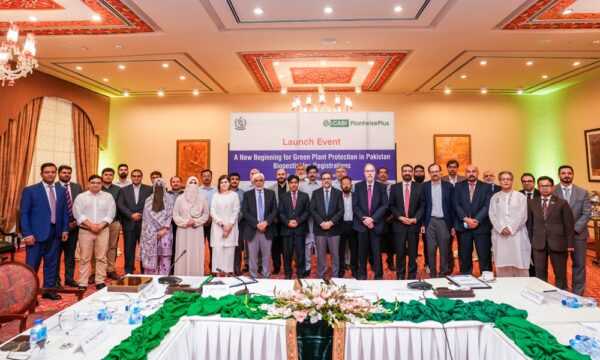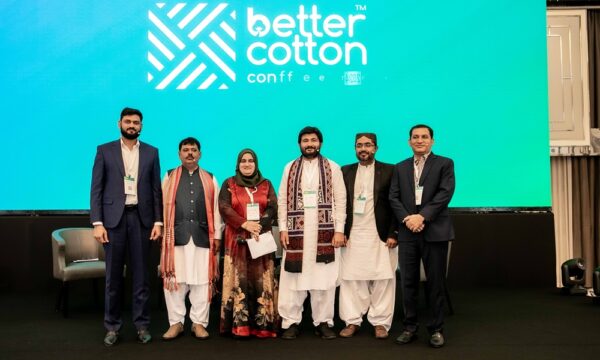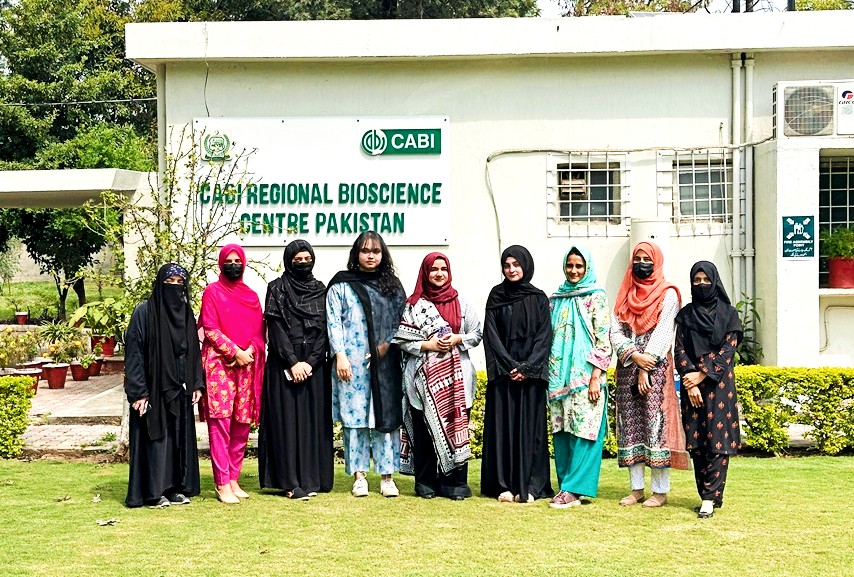
CABI’s Summer Internship Programme for 2025 in Pakistan has helped 30 young future scientists, from universities across the country, further their understanding of sustainable crop pest management for greater food security.
The internship programme, which took place at CABI’s Centre in Pakistan between February and June, gave the 18 female and 12 male interns hands-on laboratory and field experience in areas such as aflatoxin testing, insect rearing, integrated pest management and the biological control of invasive species.
Beyond technical expertise, the interns also developed critical soft skills including communication, documentation, teamwork, adaptability, and professional conduct.
Growing confidence in presenting findings
They remarked on their growing confidence in presenting findings – interacting with mentors and building networks. Several students noted how scientific collaboration and attention to detail skills, often underestimated, proved vital in research settings.
A typical day at CABI for the interns was dynamic and structured. Mornings often began with laboratory or field preparation donning lab coats, checking insect cultures, or reviewing daily tasks with supervisors.
Afternoons included data analysis, scientific reading, the studying of CABI Academy modules on subjects such as Sanitary and Phytosanitary (SPS) measures, and collaborative assignments.
Value of daily mentoring and hands-on experimentation
The interns emphasized the value of daily mentoring and hands-on experimentation.
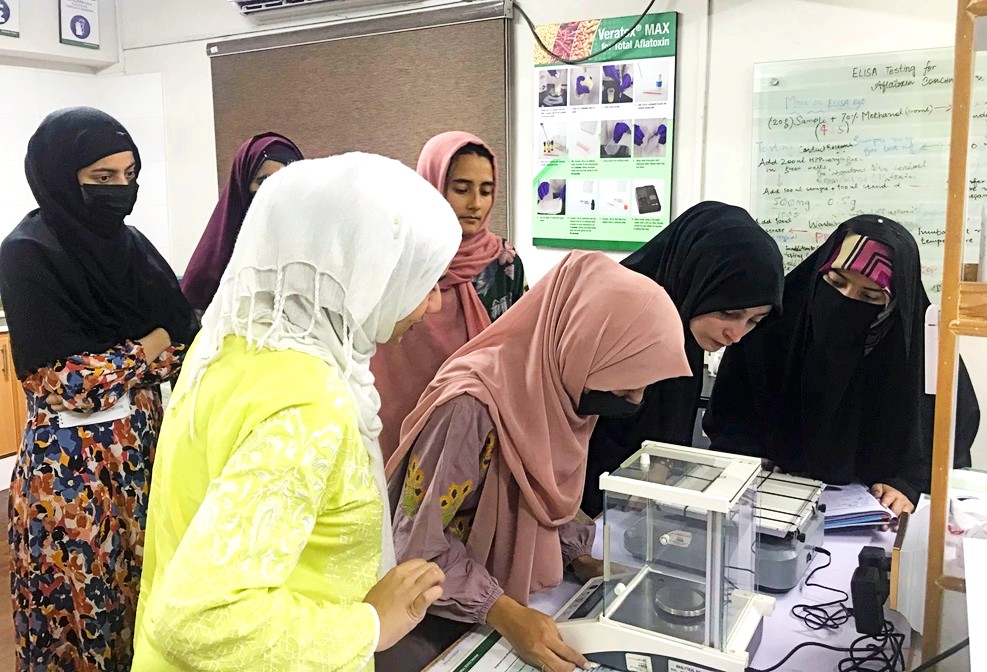
During their internship, students faced a range of challenges from shaking hands during laboratory measurements to adapting to hot field conditions and adherence to the laboratory protocols.
A student from PMAS-Arid Agriculture University, Rawalpindi, said she struggled initially with insect pinning or identifying parasitism under a microscope. Through patience, feedback, and consistent effort, she gained confidence and precision.
One intern from Faculty of Agriculture, Gomal University, Dera Ismail Khan, highlighted overcoming the fear of damaging insect specimens, while another took pride in independently operating an autoclave for the first time.
Understanding of agricultural science beyond the classroom
Among the most surprising lessons were the significance of field unpredictability, the link between pest control and international trade via SPS standards, and the critical role of small details in laboratory and taxonomy work. These insights broadened their understanding of agricultural science beyond the classroom.
The interns appreciated insightful group discussions, successful experimental results, and the supportive learning atmosphere created by their supervisors.
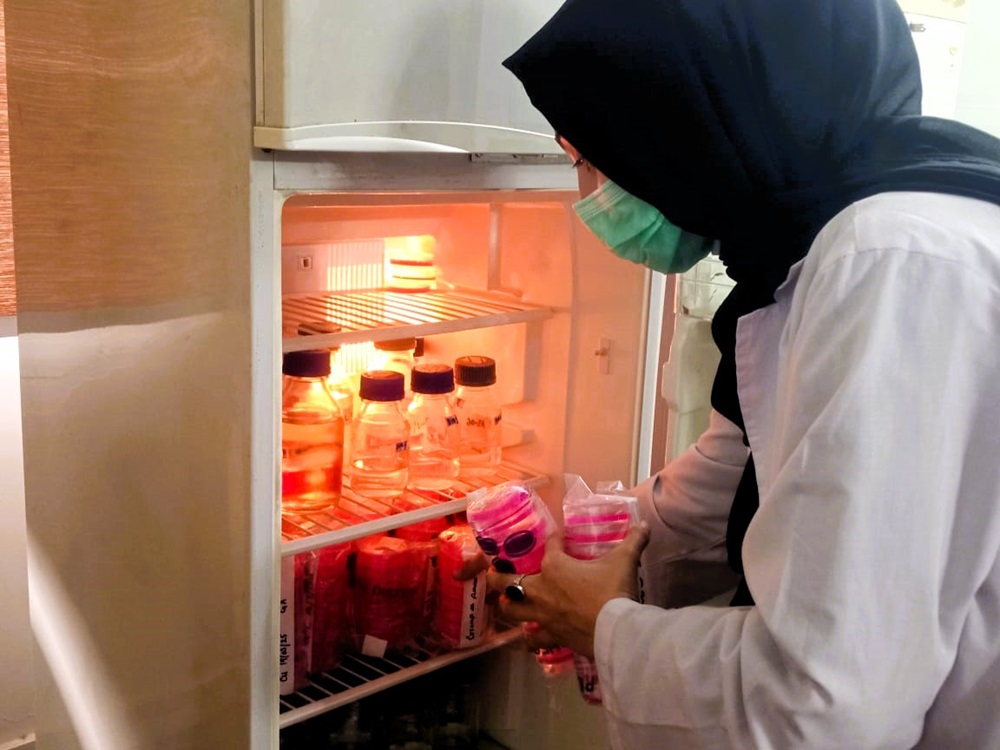
Dr Babar Bajwa, Senior Regional Director, Asia, said, “The internship programme at CABI Rawalpindi served not just as a training ground but a launchpad for future agricultural scientists.
“With hands-on training, professional mentoring, and exposure to real challenges in food safety, biological control, and pest management, these interns walk away not just with new skills but with a renewed sense of purpose and direction.”
Additional information
Main image: Some of the interns who took part in the Summer Internship Programme for 2025 in Pakistan (Credit: CABI).
Relevant story
Related News & Blogs
Sowing the seeds of success: How CABI and Better Cotton are transforming cotton farming in Pakistan
CABI’s ongoing partnership with the Better Cotton Initiative (BCI) is paying dividends in helping to transform agricultural practices in Pakistan’s cotton sector. This article highlights the progress of this work as part of World Cotton Day today (Tues…
7 October 2025


